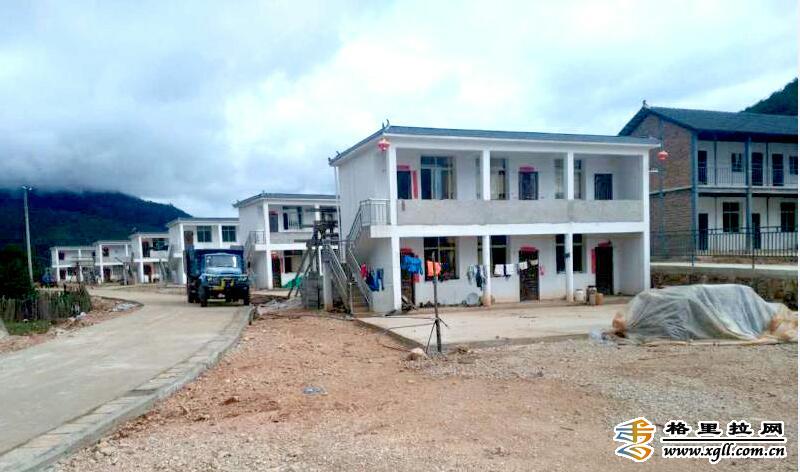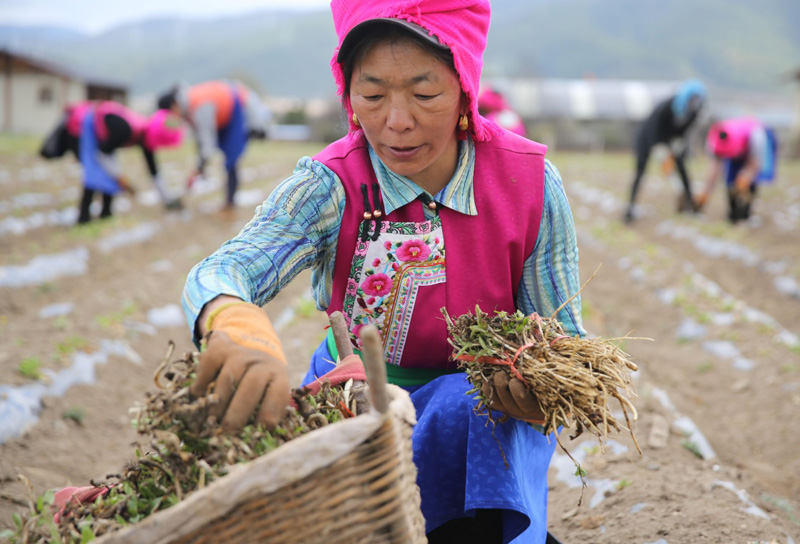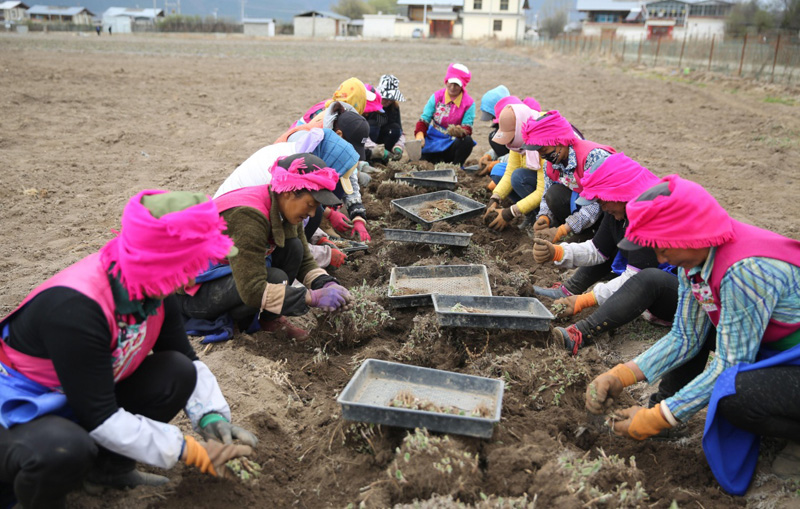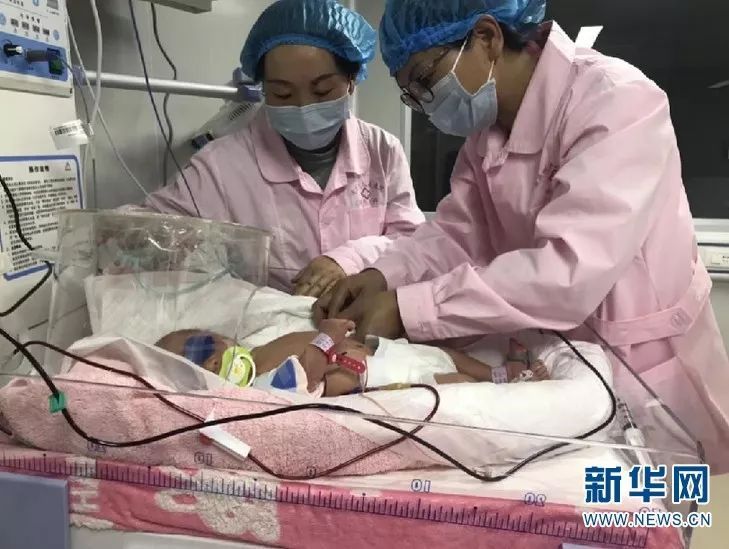Creating a new life in Diqing, northwest Yunnan

Located at the heart of the Hengduan Mountains in northwestern Yunnan, Diqing is the only Tibetan autonomous prefecture in the province, with its population impoverished by a large proportion.
Thanks to poverty-alleviation measures in recent years, an increasing number of the poor people in the Tibetan area have been raised out of poverty. Via resettlement effort, industrial cultivation, and health-care improvement, they bettered off and embarked on a new life.

At the resettlement site in Shiwang Village of Shangri-La City, arrays of two-story lovely houses are linked door to door by decent roads. "In the past, a family of three had to crowd in a single room, but now we live in a 150-square-meter house.” Tang Guiyuan, a local villager, said with pride.
In March 2016, Shiwang Village started the resettlement project as a way to shake off poverty, and the villagers successively moved to their new homes near the Jinsha River.
To make the villagers employed at the resettlement, a vegetable plantation was built up for them to grow tomatoes, peppers and broccoli. The favorable climate and soil along the Jinsha River ensured the quality of the vegetables, which are sold to Kunming, Shanghai and places afar.

Seeing job opportunities in the thriving vegetable garden, Tang Guiyuan, who used to be a migrant worker, returned home in 2018, and now his 4-Chinese-acre broccoli bring him a yearly income of 10,000 plus yuan. In his spare time, he also earns extra money at the poverty-alleviation workshop in the village. At the end of 2018, the Tang family was no longer on the list of impoverished households.
The new homes should be coupled by new industries. In 2019, Diqing Prefecture invested 173 million yuan in resettlement projects and industry cultivation, with 10,729 poverty-stricken villagers in 2,794 households moving to new residences.
A heavy snow fell quietly on the road leading to Heping Village in Xiaozhongdian, Dqing’s Shangri-La City.

"I’ve just planted medicinal herbs, and the snow will keep the soil warm and wet." Seeing at the snowflakes, Song Jianzhong, head of Zhonghao Wild Medicinal Herbs Planting Company, was pleased.
Also pleased was Na Mu, a villager in Heping Village. Last year, Na Mu earned 11,046 yuan by planting the large-leaved gentian, which was sold to Zhonghao Wild Medicinal Herbs Planting Company. As a result, Na Mu raised his family out of poverty. This year, he will plant another 3 Chinese acres of gentian for more money.
Song Jianzhong began planting the medicinal herbs in 2011, when he spent his savings on renting over 100 Chinese acres of land for trial planting in Heping Village. In 2015, he decided to focus on the herbs of large-leaved gentian and aplotaxis auriculata, and Song succeeded in urging villagers to join him.
To encourage more to plant the TCM herbs, local management enclosed 40,000 Chinese acres of deserted land. At the same time, the government joined hands with Song Jianzhong in providing villagers with seedlings and technical training. Unifying seedlings, planting, production and sales freed local farmer from risks and they joined with pleasure.

Now, more than 600 households of farmers in Xiaozhongdian have signed herb-supply contracts with the Zhonghao company, of which 57 have family members working at the plantation. Each household has one person dedicated to herb planting, and the income is increased by 8,000 per household.
Before the poverty alleviation campaign, Diqing Prefecture had no pediatric hospital, and common diseases in children were treated outside Diqing. According to local health authority, 58% of the sick infants were cured in neighboring hospitals in 2015, with the mortality rate being 17.98 ‰. And the maternal mortality rate remained high due to poor medical facilities.
Helped by related departments at the national and provincial levels, Diqing has seen great progress in health care since 2015, especially in the fields of obstetrics and pediatrics.

In May 2018, the People's Hospital of Diqing joined hands with Kunming Children's Hospital in establishing a neonatal intensive care unit, where 15 beds were set up. In addition, other hospitals in the prefecture are already standardized. For example, the Shangri-La Maternity and Childcare Hospital now offers standardized med-service in pediatrics, gynecology, and obstetrics.
On March 2, Gerong Baichen, a native from Diqing’s Deqin, gave birth to a lovely daughter at the Shangri-La Hospital. With improved service, Diqing hospitals also drew in patients from its neighboring counties in Sichuan and Tibet.
By Ye Chuanzeng (People's Daily); trans-editing by Wang Shixue